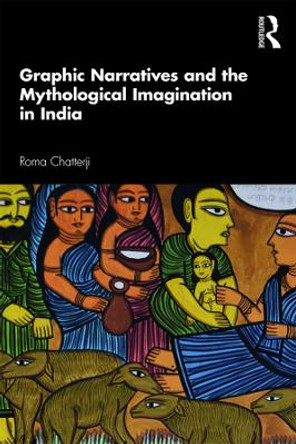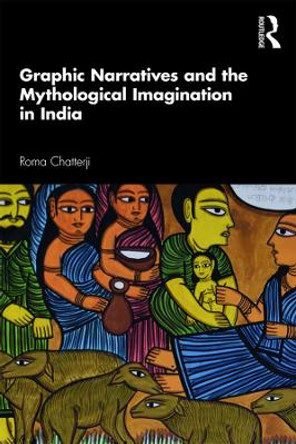Description
This volume was born and developed during the critical years of the COVID-19 pandemic and subsequent global lockdown. In a spirit of community and collective action, it offers insights into the complexity of the political imagination and its cultural scope within Spanish graphic narrative through the lens of global political and social movements.
The chapters reflect the interdisciplinary nature of the comic within the overarching methodology focusing on political and social intervention. They employ a cultural studies approach with different theoretical frameworks ranging from debates within comics studies, film and media theory, postcolonialism, gender studies, economics, multimodality, aging aesthetics, memory studies, food studies, and sound studies, among others.
This truly interdisciplinary volume will interest scholars and students of comics studies, Iberian and Latin American Studies, sociology, politics, and history.
About the Author
Xavier Dapena joined Iowa State's faculty as an Assistant Professor in Spanish and World Film Studies in 2021, after receiving his Ph.D. in Hispanic Studies and Cinema and Media Studies at the University of Pennsylvania. Based on first book project "Nobody expects the Spanish Revolution": the Radical Imagination in Graphic Narrative in Contemporary Spain, he received the Provost Fellowship for Interdisciplinary Innovation Research Award from the University of Pennsylvania for the project Gendering Spanish Comics: a Digital Archive of Women's Graphic Narratives, and the international grant, the Lucy Shelton Caswell Research Award, from The Ohio State University. His publications on Spanish graphic narrative have appeared in scholarly journals, such as Journal of Spanish Cultural Studies and Revista Canadiense de Estudios Hispanicos and edited volumes, such as Consequential Art: Comics Culture in Contemporary Spain (2019) and Spanish Graphic Narratives: Recent Developments in Sequential Art (2020).
Joanne Britland is Assistant Professor of Spanish at Framingham State University (Framingham, MA) after receiving her Ph.D. in Spanish Literature at the University of Virginia. She specializes in twentieth and twenty-first century Iberian literary, cultural, and visual studies. Joanne's publications on comics, novels, theater, television, and film appear in the Bulletin of Spanish Studies, the Bulletin of Hispanic Studies, Hispanic Studies Review, and Chasqui, with two forthcoming chapters in books published by Renacimiento and SUNY Press. Her current book project analyzes cultural responses to social, political, and economic crises in Spain from the financial crash of 2008 to the COVID-19 pandemic.
Reviews
"Living in the United States for the last decade has given me a new perspective on comics from my homeland, Spain. It has made me appreciate what a vibrant and exceptional creative landscape has developed there during the early years of this century. New graphic novels have challenged the legacy of traditional Spanish comics, but something that was sorely lacking until now was a critical approach to this movement, a project that delved into what makes comics coming from Spain in recent years so fresh and innovative. I'm happy that this collection of essays tackles all those different topics-identity, minorities, memory-in a nuanced and complex way, giving us the chance to stop for a moment and reflect on the new graphic traditions that we've been building for the future."
Santiago Garcia, Award winning graphic artist of The Ladies-In-Waiting (2017) and author of On the Graphic Novel (2010)
"Iberian studies need more concrete research like The Political Imagination of Spanish Graphic Narrative with sharp perspectives on political and social issues that are part of the Spanish Cultural expression in comics. This volume is key to develop intellectual knowledge and critical thinking about representation and ideology. Let's celebrate this solid and inspirational step toward the discussion of the political power of graphic novels and comics in Contemporary Spain."
Ana Merino, Professor and Collegiate Scholar, University of Iowa.
During the dictatorship, comics in Spain were one of the few spaces where sociological reality seeped through the interstices of seemingly children's publications, creating an indelible connection between the ninth art and society. The analyses included in The Political Imagination of Spanish Graphic Narrative demonstrate that this link not only remains alive decades later, but that modern Spanish comics have been able to adapt, in content and form, to the new demands that arise from a constantly evolving society.
Alvaro Pons, Professor and Chair of Comic Studies, University of Valencia.
Book Information
ISBN 9781032433271
Author Xavier Dapena
Format Hardback
Page Count 336
Imprint Routledge
Publisher Taylor & Francis Ltd
Series Routledge Advances in Comics Studies












